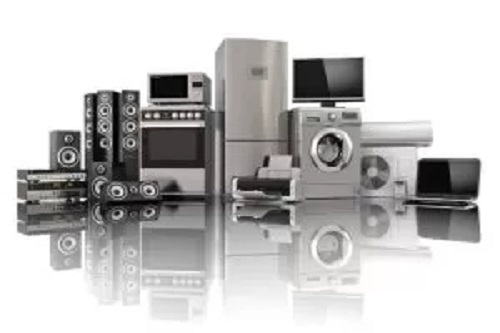
Appliances tripping circuit breakers is a common issue experienced by many homeowners. It can be frustrating and inconvenient, especially when it happens repeatedly. Understanding why appliances can trip your breaker is essential for diagnosing the problem and ensuring the safe and efficient operation of your electrical system. Here are some reasons why appliances can trip circuit breakers:
Overloading the circuit:
Each circuit in your electrical panel is designed to handle a specific amount of electrical load. When you connect multiple high-power appliances to a single circuit and exceed its capacity, the circuit breaker will trip to prevent overheating and potential electrical hazards. This is known as overloading the circuit. It’s crucial to distribute your appliances across different circuits to avoid overloading and tripping breakers.
Short circuits:
A short circuit occurs when a hot wire comes into contact with a neutral wire or a ground wire, creating a direct connection. This causes a sudden surge of electrical current, which exceeds the circuit’s capacity and triggers the breaker to trip. Short circuits can be caused by damaged or frayed wires, faulty outlets or switches, or faulty appliance cords. It’s important to address short circuits promptly as they pose a fire risk.
Ground faults:
Similar to short circuits, ground faults occur when a hot wire comes into contact with a ground wire or a grounded component. Ground faults can be caused by damaged insulation on wires, faulty appliances, or faulty electrical connections. When a ground fault occurs, the electrical current takes an unintended path to the ground, causing the breaker to trip. Ground faults are a safety feature designed to protect against electrical shocks and fires.
Motor startup surge:
Certain appliances, such as refrigerators, air conditioners, and washing machines, have motors that require a higher amount of electrical current to start. This initial surge of current, known as inrush current, can cause a temporary overload on the circuit, leading to the breaker tripping. While this is normal behavior for appliances with motors, frequent tripping may indicate an issue with the appliance or an undersized circuit.
Faulty or malfunctioning appliances:
Appliances that are faulty or malfunctioning can cause breakers to trip. Internal wiring problems, damaged components, or electrical faults within the appliance can create excessive electrical current or cause short circuits. If a specific appliance consistently trips the breaker when connected, it may require repair or replacement to prevent further issues.
Aging electrical system:
Over time, electrical systems can deteriorate due to wear and tear, aging components, or outdated wiring. If your circuit breakers frequently trip, especially when using multiple appliances simultaneously, it could be a sign that your electrical system is outdated or inadequate for your needs. In such cases, it may be necessary to upgrade your electrical panel and wiring to ensure sufficient capacity and prevent overloading. Call a local electrician if you need to upgrade your electrical panel.
GFCI and AFCI protection:
Ground Fault Circuit Interrupters (GFCIs) and Arc Fault Circuit Interrupters (AFCIs) are specialized circuit breakers designed to provide additional protection against electrical hazards. GFCIs monitor the electrical current and trip when they detect imbalances, such as in the case of a ground fault. AFCIs detect dangerous arcing conditions that can cause fires. These protective devices may trip in response to specific conditions, such as ground faults or arc faults, to prevent electrical accidents.
When an appliance trips a circuit breaker, it’s important to identify the underlying cause and take appropriate action. Start by redistributing your appliances across different circuits, ensuring that each circuit is not overloaded. Inspect appliances for any visible damage, and if necessary, consult a qualified electrician to diagnose and address any electrical issues. Regular maintenance and timely repairs can help prevent circuit breaker tripping and maintain a safe electrical system in your home.
Call Myrtle Beach Electrician Pros today for any electrical needs you may have!
MB Electrician Pros
Myrtle Beach, SC 29577
843-353-6345
https://electriciansmyrtlebeach.com/
No comments:
Post a Comment